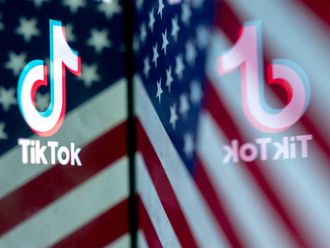Washington: When 18-year-old Kiana Neisig added up her expenses for college, she found herself short of funds, even after receiving grants and student loans. So in June, a friend set up a profile for her on a crowdfunding website to help her seek donations of roughly $2,000 (Dh7,346).
Neisig soon received 14 donations totalling $1,350, including a $500 gift from an anonymous donor. She has now started classes at George Fox University, a small college in Newberg, Oregon, where yearly tuition and fees are more than $31,000. She plans to use the money to help cover living expenses next semester. The website made it easier to seek help, she said.
“Personally, it would be difficult for me to approach even friends and close family and ask for money,” she said, adding that she was “honoured” by the support she received.
The site she used, GoFundMe, is one of many crowdfunding sites that use the power of social media to raise money for a variety of purposes. But while sites like Kickstarter are geared toward funding creative projects and entrepreneurs, GoFundMe and other sites, like Crowdrise, let individuals pursue personal fund-raising. You create a profile, including a photo and an explanation of what you’re seeking the money for, and then spread the word on networks like Facebook and Twitter.
GoFundMe says it has raised $420 million across all categories since 2010; education is the second-most-popular category, after medical treatments. When asked via email how many students reach their initial fund-raising target, GoFundMe’s chief executive, Brad Damphousse, did not directly answer. Rather, he replied, the site’s users can change their goal whenever they want, and they don’t have to set a deadline for reaching it.
Unlike Kickstarter, which requires its users to meet a goal to get the money, GoFundMe and Crowdrise allow individuals to keep the donations whether or not the goal is met.
Crowdrise’s chief executive, Robert Wolfe, said his site had recently added an option for individuals — rather than recognised charities — to raise funds and that the educational category is growing.
Sebastian Summers, an aspiring actor and film producer from San Antonio, set up a profile on GoFundMe in June, with a goal of raising $10,000 to help cover his costs at the Chicago College of Performing Arts, part of Roosevelt University. (Scholarships are covering much of his tuition.) So far, he has received $350 and some encouraging notes.
While he’s grateful for the support, Summers said, “To be honest, it was a little disappointing.” He speculated that perhaps his story lacked drama. “I’m just an art student going to college,” he said.
Heart-rending stories tend to gain the most attention and donations from beyond a student’s circle of friends. A Vanderbilt University student whose profile told of her mother’s suicide shortly before her freshman year raised $50,000, double her goal. And GoFundMe says its most successful campaign raised more than $1 million for a child with a rare genetic disease.
Asking friends and family for cash can be challenging for students from low-income families, however, because they tend not to move in well-heeled circles. And more affluent strangers may be hesitant to open their wallets because it’s difficult to confirm the students’ financial situations.
Neither GoFundMe nor Crowdrise independently verifies the claims made in profiles. Damphousse of GoFundMe says most donors are friends and families of the students and know the details of their lives. However, he wrote in an email, “if we ever do receive a complaint, we will investigate accordingly.” Wolfe of Crowdrise says fabricated stories haven’t been an issue so far, but the site encourages donors to give to those they know personally.
Those kinds of factors led another education crowdfunding site, ScholarMatch, to take a different approach, said Diana Adamson, the site’s executive director. The non-profit, which aims to match donors with low-income and first-generation college students, initially allowed students to post their own profiles. But donors often wanted more details about the students, she said, and some were reluctant to make donations to individuals because donations directly to individuals generally aren’t tax-deductible.
So now ScholarMatch vets applicants and verifies their eligibility, including financial details, and then posts their profiles on its website. Donors’ funds are pooled into a single scholarship fund, which is distributed by ScholarMatch. Donors can’t earmark their funds for a specific student, Adamson said, but the funds are directed to a student who best meets their preferences — say, a Hispanic woman who wants to study medicine.
The site, which was founded by author Dave Eggers, who serves on its board, currently offers its services only to students from the San Francisco area but will soon expand to Los Angeles and has national ambitions, Adamson said.












